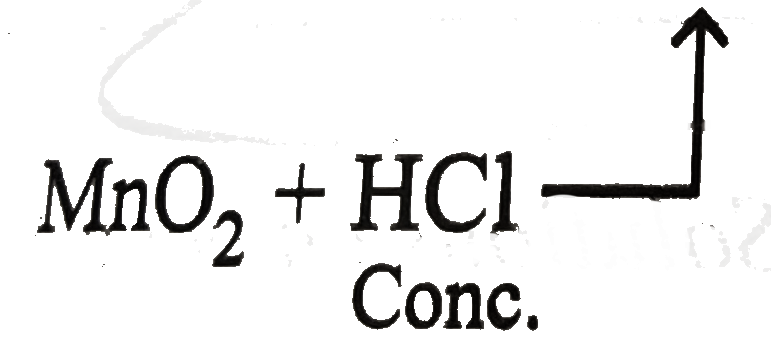A tetra-atomic molecule (A) on reaction with nitrogen (I) oxide, produces two substances (B) and (C). (B) is a dehydrating agent while substance (C) is a diatomic gas which shows almost inert behaviour. The substances (A),(B) and (C) are
P4,P4O10,N2
P4,N2O5,N2
P4,P2O3,Ar
P4,P2O3,H2
The correct Answer is:A
Step by step video, text & image solution for A tetra-atomic molecule (A) on reaction with nitrogen (I) oxide, produces two substances (B) and (C). (B) is a dehydrating agent while substance (C) is a diatomic gas which shows almost inert behaviour. The substances (A),(B) and (C) are by Chemistry experts to help you in doubts & scoring excellent marks in Class 12 exams.
Updated on:21/07/2023Topper's Solved these Questions
- P-BLOCK ELEMENTSBOOK - MOTIONCHAPTER - P-BLOCK ELEMENTSEXERCISE - Exercise - 2 Objective Problems | JEE Adv.
37 Videos
- P-BLOCK ELEMENTSBOOK - MOTIONCHAPTER - P-BLOCK ELEMENTSEXERCISE - Exercise - 3 | Subjective | JEE Advanced
53 Videos
- P-BLOCK ELEMENTSBOOK - MOTIONCHAPTER - P-BLOCK ELEMENTSEXERCISE - Exercise - 4 | Level-I Previous Year | JEE Main
37 Videos
- OXIDATION & REDUCTION BOOK - MOTIONCHAPTER - OXIDATION & REDUCTION EXERCISE - EXERCISE -4(LEVEL-II)
10 Videos
- PERIODIC TABLE BOOK - MOTIONCHAPTER - PERIODIC TABLE EXERCISE - Exercise - 4 | Level-II
22 Videos
Similar Questions
(a) A tetratomic molecule (A) on reaction with nitrogen (I) oxide, produces two substances (B) and (C) is a dehydrating agent while substance (C) is a diatomic gas which shows almost inert behaviour. Identify (A),(B) and (C).
(b) Why red phosphorous is denser and chemically less reactive than while phosphorous ?
( c) Why nitrous oxide supports combustion better than air ?
View SolutionA person shows unwelcome immunogenic reactions while exposed to certain substances.
(a) Name this condition.
(b) What common term is given to the substances responsible for this condition?
C Name the cells and the chemical substances realesed which cause such reactions.
View Solution
Knowledge Check
A tetra-atomic molecule X on reaction with nitrogen oxide (Oxidation State = 1) produces two substances Y and Z. Y is a dehydrating agent while compound Z is a diatomic gas which shows almost inert gas behavior. The substances X, Y and Z are
AP4,N2O5,O2BP4,P4O10,ArCP4,P2O3,O2DP4,P4O10,N2AgCOP3+(A)→(B)+(C)+(D)

The substances (A), (B), (C ) and (D) areACI2,AgCI,CIO2O2BCI2Ag,CI2O6,O2CH2,AgCI,H2O,O2DHCIO,AgCI,CIO2,O2The substances A and B when brought together form a substance C with the evolution of heat. The substance C is
Aa compoundBan elementCa mixtureDnone of these
Two properties of four substances A, B, C and D are given in the table.

Which of these substances in most likely a metal and why ?
View SolutionWhat is an oxidation reaction (i) the substance oxidised and (ii) the substance reduced:
ZnO+ C → Zn + CO
View SolutionAssertion : In the reaction Zn(s)+Cu2+(aq)→Zn2+(aq)+Cu(s)Cu2+ ions acts as oxidising agent and Zn atoms act as a reducing agent
Reason : A substance (atom, ion, or molecule) which readily gain electrons from other substances is an oxidising agent while reducing agent is a substance (atom, ion or molecule) which can lose electrons to other substances.
View SolutionThe gold number of three substances A , B and C are 0.05 , 0.8 and 0.3 . The substance with maximum protective power is
View SolutionRedox reactions involve simultaneous reduction-oxidation reactions. The process of oxidation involves addition of oxygen or any other electronegative element or loss of hydrogen or any other electropositive element. The reverse of this process is called reduction. Reduction also involves addition of electrons or decrease in the oxidation number an atom or ion present in a substance. Substances which bring about oxidation of other substances are called oxidants while those which bring about the reduction of other substances are called reductants. In terms of electronic concept, reductants. In terms of electronic concept, reductants are electron donors while oxidants are electron acceptors. Oxidants also involve decrease in oxidation number of one of its atoms/ions while reductants involve increase in the oxidation number of one of its atoms/ions.
Oxidation numbers are always while numbers and must be always calculated on the basis of their structures and never from their molecular formulae. Redox reactants may involve combination of atoms/molecules, decomposition of substances, displacement of metals of non metals and disproportionation of a particular species which may be metals, non-metals or ions. Redox reactions can be balanced both by oxidation number method as well as by ion electron method.
A compound contains atoms of three elements A, B and C. If the oxidation number of A is +2,B is +5 and that of C is −2 the possible formula of the compound is
View Solution
